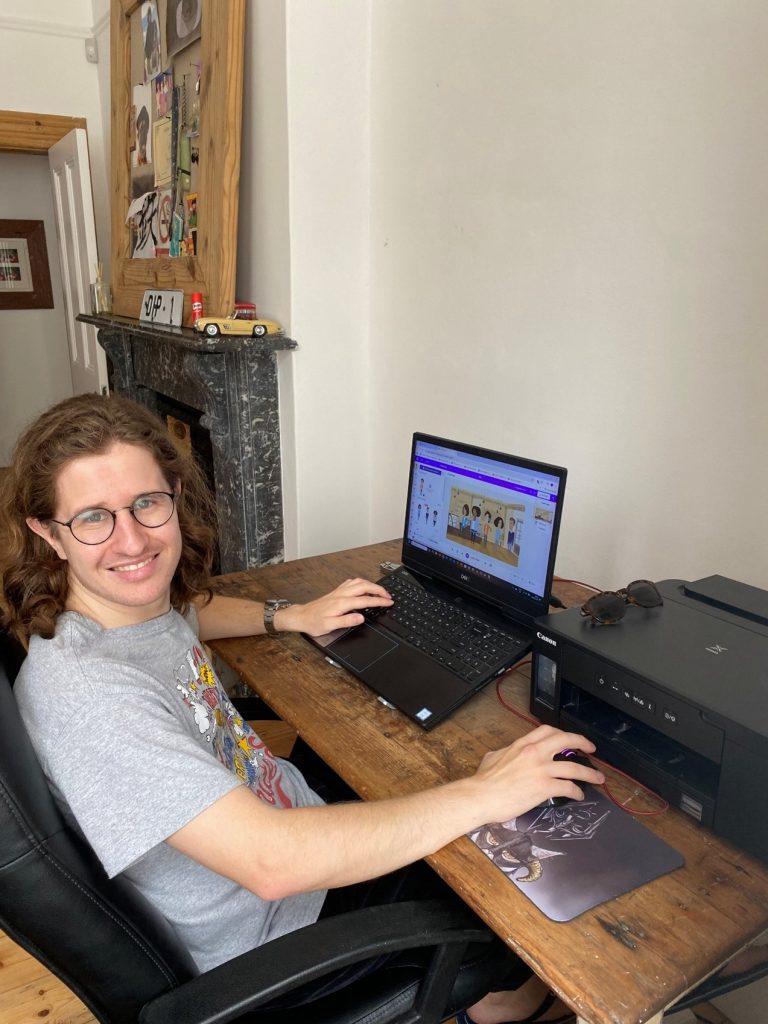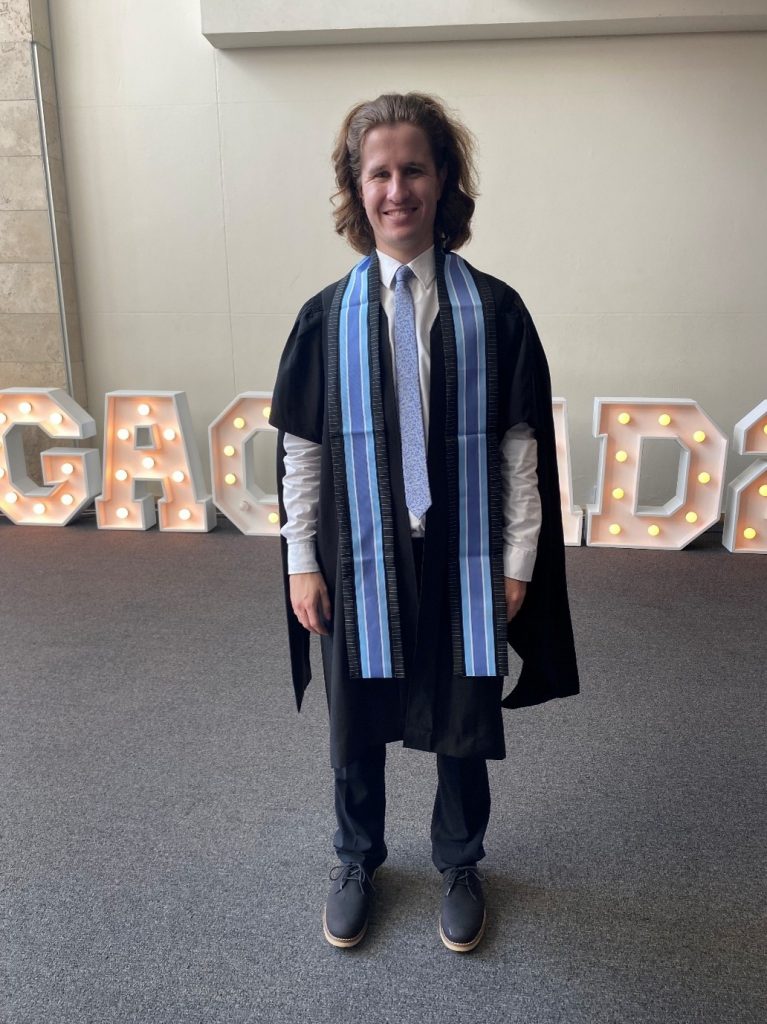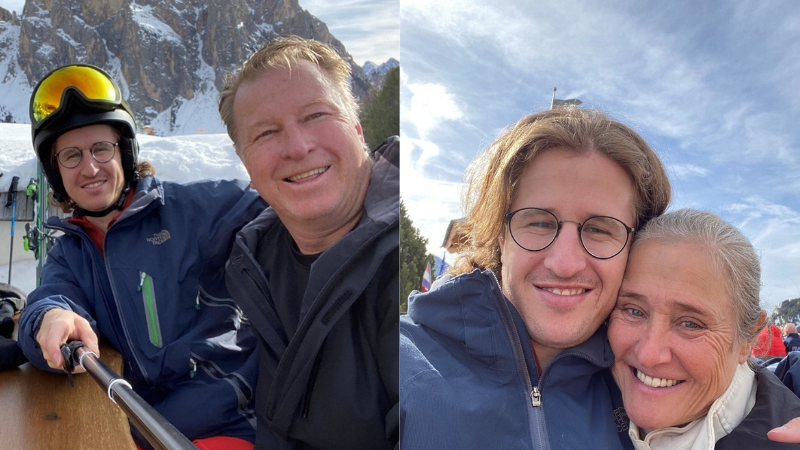Luke Jones, a 25-year-old aspiring animator from Johannesburg, has spent the past four years living in Cape Town, studying Computer Game Design at Vega University. Diagnosed with autism at the tender age of two, Luke’s journey has been one of resilience, determination, and more recently, a desire to make the world a more inclusive place for neurodiverse individuals. Given his challenge to find suitable employment, Luke is channeling his passion for animation into an ambitious project that aims to bridge the gap between neurodiverse and neurotypical worlds.
 Image above: Luke Jones working on his first planned short film, Tim’s First Day at Work
Image above: Luke Jones working on his first planned short film, Tim’s First Day at Work
Growing up, Luke faced challenges that many neurodiverse individuals can relate to. “I had trouble regulating my emotions back then, so there were lots of emotional outbursts,” he recalls. His early years were shaped by the unwavering support of his family, including his parents Gavin (60) and Bonita (60), brother Simon (27), and a team of dedicated therapists and facilitators who have helped Luke navigate the complexities of the schoolyard, regulate his emotions, and overcome developmental delays through intensive therapy.
Despite these challenges, Luke’s hard work paid off. He successfully completed his university degree and is now using his experiences to inspire a groundbreaking project: a series of animated short films designed to help neurodiverse individuals navigate everyday situations while fostering greater understanding among neurotypical audiences.
 Image above: Luke with his family, brother Simon, mom Bonita, and dad Gavin, at Kruger National Park
Image above: Luke with his family, brother Simon, mom Bonita, and dad Gavin, at Kruger National Park
The first planned short film in the series, Tim’s First Day at Work, will explore the challenges a neurodiverse employee might face in a typical office environment. By depicting relatable scenarios such as Tim’s first visit to the doctor, his first date, and even his first haircut, the series aims to give the rules of the game to neurodiverse individuals while educating neurotypical viewers about the unique experiences of those on the autistic spectrum.
“Animation is a medium that’s easy to understand in a literal and direct way,” Luke explains. “Sometimes I may miss subtle communication cues in real life, but animated work can make these subtleties very clear, and I know others like me would appreciate it as well.”
The ultimate goal of the series is to promote empathy, understanding, and inclusion in schools, workplaces, and public spaces. Luke envisions these resources being used by educators, HR professionals, social workers, and other facilitators to create environments where neurodiverse people feel seen, heard, and supported.
Watch the video here: https://youtu.be/-51GZRq9WB8
Through this initiative, Luke hopes to spark change. “I would like to see a society that celebrates neurodiversity and creates circumstances in which everyone feels appreciated, supported, and included,” he shares.
To bring his vision to life, Luke has launched a crowdfunding campaign on BackaBuddy where he has already raised over R28 000 with the help of 14 incredible donors. The funds will cover essential production costs, including storyboarding, animation, voice work, and distribution, as well as securing professional guidance from professional consultants that specialise in neurodiverse interventions to ensure the accuracy and authenticity of the project. These educational guides will provide practical advice and conversation starters for teachers, parents, and employers. Importantly, Luke has made it clear that none of the funds will be used for his personal needs; every cent will go directly toward creating these impactful resources.
 Image above: Luke at his university graduation
Image above: Luke at his university graduation
“Thank you all so much. Your contribution to this project will make a big difference in the lives of neurodivergent people. My hope is that your donations will enable the right people to create resources that promote greater understanding, empathy, and inclusion in schools, workplaces, and other public spaces. These animated videos will help to bridge knowledge gaps between neurotypical and neurodivergent and to foster a more supportive, caring society in which everyone, regardless of neuro-classification, may thrive. You are an important part of this journey. Your dedication to assisting others is genuinely changing the world for the better and I salute you.” Luke says.

